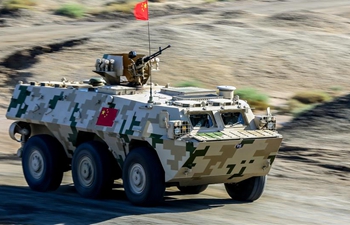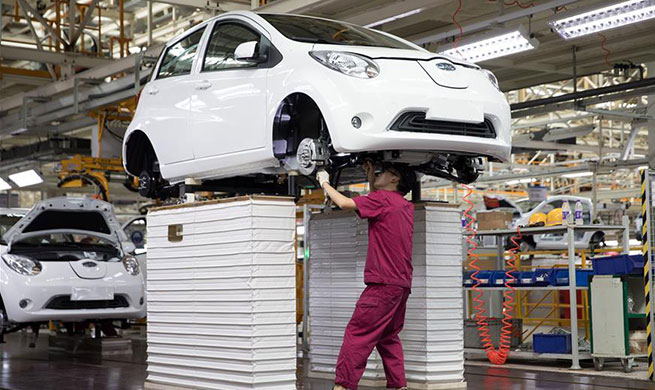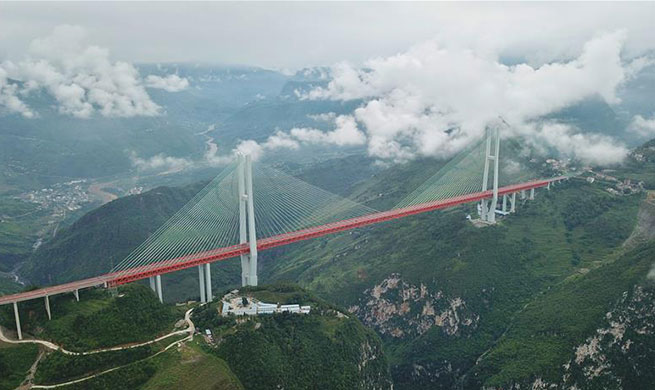BERLIN, Aug. 9 (Xinhua) -- Thyssenkrupp has vowed to increase the pace of corporate reforms at the ailing industrial conglomerate on Thursday after posting mixed earnings figures for the third quarter (Q3) of 2018.
In spite of negative currency effects, the Essen-based company achieved an increase in gross revenue by 7 percent in Q3 compared to the previous quarter. However, adjusted earnings before interest and taxes (Ebit) still fell by an annual rate of 36 percent to 332 million euros (384.3 million U.S. dollars).
Thyssenkrupp further recorded net quarterly losses of 131 million euros after having posted profits of 254 million euros in Q3 2017. The company largely attributed the development to its ailing Industrial Solutions division which recorded unit losses of 213 million euros alone.
After issuing a profit warning with view to anticipated costs overruns at the Industrial Solutions unit in July, the company still expects adjusted Ebit to come in at 1.8 billion euros in 2018. Thyssenkrupp also set itself a target to improve its currently negative cash flow situation substantially by the start of the 2020/2021 fiscal year.
"We see a mixed picture. Overall, the current results are not satisfactory for us", a statement by interim chief executive officer (CEO) Guido Kerkhoff read.
Thyssenkrupp is under heavy pressure from its second largest shareholder Cevian to break up the industrial behemoth into smaller, arguably more profitable, units. Internal conflicts over the strategic development of the company recently provoked a severe leadership crisis when the former CEO Heinrich Hiesinger and board chairman Ulrich Lehner both resigned abruptly within less than two weeks.
In the immediate aftermath of Hiesinger's exit, Lehner lashed out against investors whom he accused of trying to destabilize the company. The chairman cited insurmountable differences in opinion between himself and major shareholders over the future trajectory of the firm as having led to the decision, warning that a break-up of the company was "not a viable option".
Kerkhoff, who was temporarily promoted from chief financial officer (CFO) to CEO after Hiesinger's departure, admitted on Thursday that there was no point in "sugar-coating" the current difficulties experienced by Thyssenkrupp. "The cash flow in particular is unsatisfactory and constitutes a situation which cannot be sustained in the long term. We have to improve significantly across all of our businesses", he said.
Nevertheless, the CEO argued that there was "huge potential" which still lay dormant in Thyssenkrupp's businesses. Kerkhoff announced that he would focus his energy on "unlocking" the identified potential, starting with efforts to generate more cash flow in the next two years.
"We now have to focus on what we have in our own hands," Kerkhoff said.
Kerkhoff pointed to strong quarterly growth in the volume of new orders as a first tentative sign of a turn-around at Thyssenkrupp and emphasized that the merger of the company's steel division with the European operations of Indian rival Tata Steel had continued to progress well in Q3.
Thyssenkrupp was formed in a merger of the long-standing Thyssen and Krupp industrial conglomerates in 1999 and operates across five major divisions spanning automotive components, elevators, steel, materials services and industrial solutions. The company employed more than 150,000 workers across the world as of 2016.













